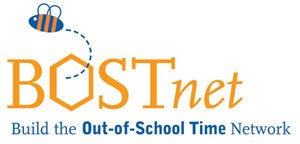So, the education reform "rocking chair" continues to rock. The newly created Education Secretariat, under the leadership of Paul Reville, is proposing an expansion of the MCAS tests. As more and more business leaders are bemoaning the lack of 21st century skills, including problem solving, critical thinking, collaboration and communications, the state is looking for ways to create a testing regimen to analyze these skills. These would potentially lead to MCAS tests that include lab work, oral presentations, and team-based activities. (In the spirit of full disclosure, BOSTnet advocated for a much broader evaluative framework for students in Massachusetts in a report on Expanded Learning Time and Out-of-School Time in 2007).
This movement is a backlash against the current MCAS system that many believe have pushed Massachusetts to the forefront of academic achievement. These successes, however, have their price and have not quelled concerns over post-graduation "readiness." As Gary Gottlieb, president of Brigham & Women's Hospital stated, "even highly educated people are not able to express themselves and convey the knowledge they have." Or, as Paul Toner of the Massachusetts Teachers Association argues, "we have to have kids do things, as opposed to just sitting and studying things."
Critics of the proposals who are more concerned with maintaining high standards and school accountability, such as the Center for School Reform at the Pioneer Institute, are troubled by the plan. The center's director, Jamie Gass, argues "what we are seeing here is an incremental dismantling of education reform that has made Massachusetts the highest-performing state in the country." Gass continues to note, "Many of the skills are unmeasurable and ill-defined."
It seems that 15 years of education reform have created clear results. The focus on a more narrowly defined academic curriculum has elevated Massachusetts as a beacon of academic success nationwide. But, this focus has diminished schools' ability to foster skills that are valued in society--critical thinking, teamwork, creative problem solving and engagement. More disturbing, this focus has failed to engage and lift the academic achievement of many of our underrepresented residents. And, as a recent report notes, even those students that do graduate and go on to higher education in urban areas such as Boston, few complete their coursework and earn a degree.
Perhaps most concerning about this is the emphasis on evaluating these skills as opposed to teaching them. There is a very real debate that needs to take place on whether or not schools are best equipped to foster these skills when they already have the very difficult and important job of educating youth in core subject areas, such as math, literacy, science and social studies. The current response is to extend the school day, but is the most cost effective and appropriate strategy? Significantly, it is precisely these types of skills that the out-of-school time field is best at providing. OST programs that follow a youth development framework can provide high-quality informal learning and relationship-based programming that builds resiliency and developmental assets that are the foundation of 21st century skills. Unfortunately, federal and state funding for these programs tend to lock them into models child care or academic remediation.
Perhaps it is time that we unleash the creative energy of the OST field to work with children and youth in a way that is true to its potential. Good youth development should not be reserved for the children of parents who can afford to pay tuition to OST programs. And state and federally funded OST programs should not be charged with supporting the academic outcomes that schools are responsible for achieving. Gass is correct is saying that these skills are ill-defined and difficult to measure. Investing in quality OST programs is an investment in outcomes that are cumulative over time. Assessing quality on short-term measures that are linked to school-driven outcomes does not serve the field or, more importantly, children and youth.
It is time that OST leaders and providers step up to create a vision for the field that addresses the problems that are so clearly in front of us.
16 years ago
